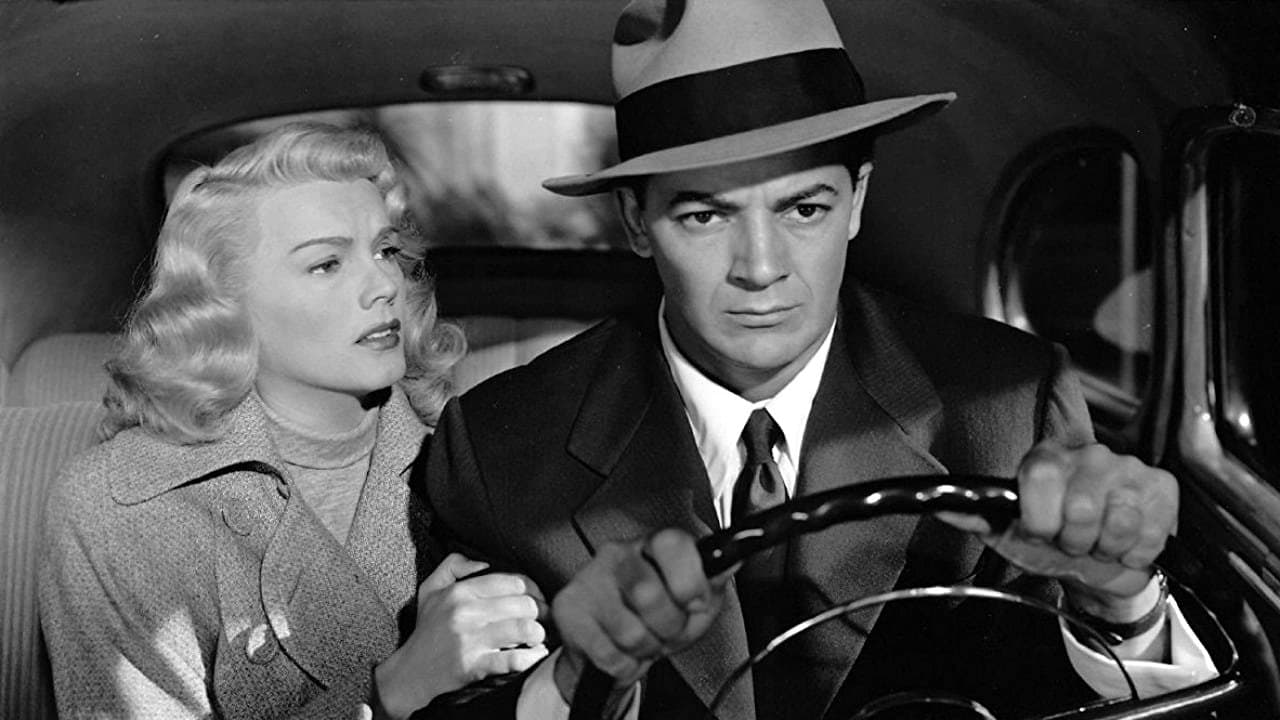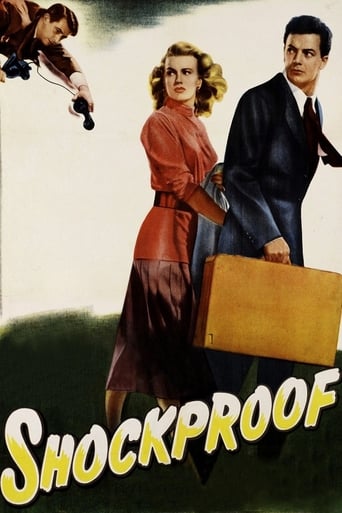Grimossfer
Clever and entertaining enough to recommend even to members of the 1%
Mischa Redfern
I didn’t really have many expectations going into the movie (good or bad), but I actually really enjoyed it. I really liked the characters and the banter between them.
Sabah Hensley
This is a dark and sometimes deeply uncomfortable drama
Mandeep Tyson
The acting in this movie is really good.
classicsoncall
There are some great lines in the picture but as the story evolves, it makes less and less sense. I guess it's not out of the question that a parole officer could fall for one of his clients, but where the idea falls short is when he abandons his job and scurries cross country with the fatal dame, living on pick up jobs and boosting sandwiches. Stealing a car and heading for Mexico garner bonus points for this couple (Cornel Wilde and Patricia Knight) on the run, but when they're let off the hook by the poor sap and former boyfriend Jenny Marsh (Knight) thought she killed by accident, well that just tore it for me. Earlier in the movie when Jenny tells Griff Marat (Wilde), "Maybe I'm no good, but I do love you", I thought the remark captured what every great noir film aspires to, the flawed femme fatale juggling her affections between the men who covet her. However it's all undone when Marsh's former flame reacts from his hospital bed declaring "I'm enough of a gambler to know when I've lost". At that point, the viewer knows it too.
Spikeopath
Shockproof is directed by Douglas Sirk and written by Samuel Fuller and Helen Deutsch. It stars Cornel Wilde, Patricia Knight, John Baragrey and Esther Minciotti. Music is by George Duning and cinematography by Charles Lawton Jr. When convicted murderess Jenny Marsh (Knight) is released into his care, parole officer Griff Marat (Wilde) literally finds his life being turned upside down... As many film noir lovers will attest too, there are a number of noir movies out there that frustrate with their endings to the point it induces anger. One such film is Shockproof, a meeting of two great film making minds undone by a studio decision so soapy and irrelevant that studio heads should have rolled post haste. I'm the one who gets spanked. Shockproof actually is a great film noir, it takes a simple honest to goodness man, introduces a classic femme fatale into his life, and before you can say "stop you fool", he's in it up to his neck. Stylistically it's top notch noir as well. Sirk and Lawton consistently have bar shadows featuring prominently, Jenny Marsh never escapes them, she may be out of prison but the parole office and latterly Harry Wesson's (Baragrey very good as her no good weasel boyfriend) hotel room consistently imprison her - and actually, Griff as it comes to pass. The Marat home is a delightful amalgamated design of art deco and the ornate. While in Wilde's hands Griff moods and smokes a lot, just as Jenny smolders and dives into his soft melancholic eyes (Wilde really does have sad eyes!). Excuse me while I push Humpty Dumpty off his wall! It's all there, for a good hour it's prime film noir, both as a story (the protags join a fine list of noir couples on the lam) and for tech skills as well, but then it all goes pear shaped. Even before you realise that Griff has suddenly abandoned his disabled mother and younger brother without so much as a goodbye, a turn of events leads to a Hollywood type ending (Deutsch brought in for the rewrite) that defies logic, belief, and something that ultimately comes off as insulting. Aaaarggghhh! Sirk and Fuller were disgusted, both wanted Fuller's original ending, and when you look into it, it would have been film noir nirvana and most fitting. A shame unbound for sure, for this is great for the most part as Wilde and Knight have genuine sparks (a real off screen romance) and Sirk, Fuller and Lawton are in sync thematically. In its fullest form it's a sad 5/10 movie, if turning off 5 minutes before the end and pretending that the couple's fate is unknown - or using our own imaginations and supplanting Fuller's originally scripted finale, then it's a mightily strong piece of film noir.
marcslope
Like other early Douglas Sirks, this noir doesn't delve very far into his later themes of American hypocrisy or false values, and it has none of the visual flair for which he became known. It's just a mild, casually plotted melo about a parole officer who falls for his charge and ends up on the lam with her. Wilde, though he was then married to his pretty leading lady, Patricia Knight, doesn't seem very interested in her, and the rest of the no-name cast is trapped in a web of poor character motivations and listless dialog. The resolution is, as another poster noted, hilariously out of left field -- that character would never do that. On the plus side, we get some nice shots of 1948 L.A., and a few scenes in an oil field camp with one-room worker shacks feel authentically gritty and mid-century. But as a romance, it's unconvincing, and as a noir, it's without thrills.
writers_reign
There's a world of difference between Cornel Wilde's previous film, Roadhouse, and this one and it's not entirely due to the casting - Roadhouse boasted a great quartet in Wilde, Richard Widmark, Ida Lupino and Celeste Holm, whereas her we get Wilde, period, and Jean Negulesco handled Roadhouse better than Douglas Sirk handles Shockproof (a meaningless title having nothing to do with the story. Considering they'd been married a good decade there's remarkably little chemistry between Wilde and Patricia Knight or indeed between anyone in the cast and anyone else. The protagonists meet in the first minute, she a parolee, he her parole officer and you can bet the farm he's going to fall for her despite his 'tough' attitude. It's all fairly predictable but Sirk was a decent craftsman and is able to salvage something ... not much, but a little. For Sirk completists only.

